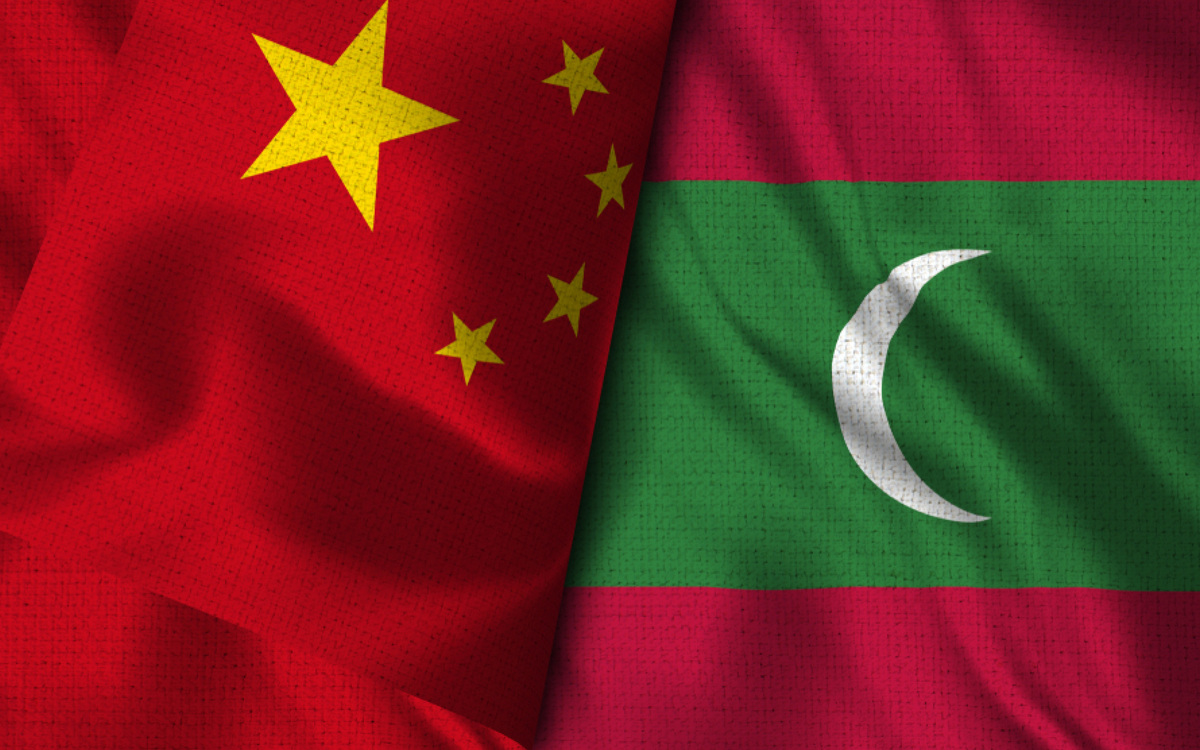Published
2 years agoon

Welcome to the sunny shores of the Maldives, where pristine beaches and crystal-clear waters have long been the allure for tourists around the world. However, beyond the postcard-perfect scenery, this paradise is facing a harsh reality.
The Maldives, a small island nation located in the Indian Ocean, finds itself on the brink of bankruptcy. Mounting debt and a growing reliance on China have raised concerns over the country’s financial stability. There are a multitude of factors contributing to the Maldives’ precarious situation, including the role of China in its economic landscape, with potentially disastrous consequences for the nation and its people.
The Maldivian economy has been under significant strain due to substantial loans acquired from China, which amount to over $3 billion. This heavy debt burden has caught the attention of international financial institutions and raised alarms about the country’s ability to repay its obligations. The International Monetary Fund (IMF) has warned that the Maldives faces a heightened risk of debt distress, particularly due to its growing reliance on China.
According to the IMF, the Maldives’ external and overall debt distress is increasing, and urgent policy adjustments are necessary to address the situation. Without significant changes, fiscal deficits and public debt are expected to remain high, putting further strain on the country’s already fragile economy.
China has emerged as a key player in the Maldives’ economic landscape. The country has fostered a friendly relationship with China, with President Muizzu referring to it as one of the Maldives’ “closest allies and developmental partners.” This growing proximity has led to increased financial support from Beijing, including substantial investments in infrastructure projects such as the expansion of the Velana International Airport and the construction of the China-Maldives Friendship Bridge.
Chinese investments in the Maldives have reached $1.37 billion since the country joined China’s Belt and Road Initiative in 2014. These investments have been crucial for the Maldives’ tourism sector, with Chinese tourists representing the largest group of foreign visitors. However, the COVID-19 pandemic and related travel restrictions have caused a decline in tourism, impacting the Maldives’ revenue streams.
The Maldives’ mounting debt to China has raised concerns about falling into a “debt trap.” The existing debt of $1.37 billion to China already accounts for approximately 20% of the nation’s public debt. China has become the largest bilateral creditor to the Maldives, surpassing traditional lenders like Saudi Arabia and India.
Critics argue that China’s lending practices, often characterized by opaque terms and conditions, could trap countries in a cycle of debt. The lack of transparency surrounding these loans makes it difficult for other creditors to intervene and provide assistance. Former President Mohamed Nasheed has even referred to China’s lending as a “debt trap.”
The consequences of excessive debt can be devastating for countries like the Maldives. The World Bank has warned that the country’s heightened sovereign exposure and lack of domestic investment opportunities could hamper economic growth. The depletion of foreign currency reserves and the diversion of tax revenues to debt servicing can leave nations struggling to fund essential services and infrastructure projects.
China’s lending practices have come under scrutiny globally, with several economically vulnerable countries already feeling the strain. Nations such as Pakistan, Kenya, Zambia, Laos, and Mongolia, heavily indebted to China, are facing significant challenges in servicing their debts. These countries are diverting vital tax revenues away from crucial sectors like education, healthcare, and infrastructure development.
The lack of debt forgiveness and China’s stringent lending practices further exacerbate the situation. Countries like Zambia and Sri Lanka have already defaulted on their loans, leading to economic crises, job losses, inflation rates, and increased poverty levels. The long-lasting impact of China’s lending practices on global stability and economic dynamics has raised concerns among experts.
Zambia provides a stark example of the consequences of extensive borrowing from Chinese state-owned banks. While the influx of billions of dollars initially boosted economic growth, the accompanying surge in foreign interest payments left the government financially constrained. Consequently, spending on critical sectors like healthcare, social services, and agricultural subsidies had to be slashed.
China’s lack of transparency in loan terms prevented other creditors from discerning the conditions and repayment priorities. Zambia’s appeal to non-Chinese lenders to suspend interest payments was unsuccessful, leading to a depletion of foreign currency reserves and an inability to meet financial obligations. Ultimately, Zambia defaulted on its loans, resulting in soaring inflation rates, record unemployment levels, and currency devaluation.
Zambia’s experience highlights the urgent need for debt forgiveness and greater transparency in international lending practices, especially when it comes to China. The repercussions extend beyond Zambia, with other nations facing similar challenges and seeking alternative funding sources to secure their economic stability.
As the Maldives navigates the stormy waters of debt distress, it faces tough choices and important decisions. The government must adopt urgent policy adjustments to address fiscal deficits and reduce reliance on external debt. Diversifying the economy beyond tourism and exploring alternative sources of revenue will be crucial for long-term financial stability.
The Maldives should also consider engaging in transparent and inclusive negotiations with its creditors, including China. By fostering open dialogue and seeking mutually beneficial solutions, the country can avoid falling into a debt trap and ensure the well-being of its people.
International financial institutions and the global community also have a role to play in supporting the Maldives during this challenging time. Assistance in debt restructuring, capacity building, and sustainable development initiatives can help alleviate the country’s debt burden and promote economic resilience.
In conclusion, the Maldives stands at a critical juncture, balancing the allure of economic development and the risks of excessive debt. By addressing the challenges head-on, adopting prudent financial practices, and fostering transparent partnerships, the Maldives can navigate the stormy waters and secure a stable and prosperous future.


National Insurance Company Limited, Comprehensive Protection for a Growing Nation


Indian Legal Tech sees the dawn of smart Justice


UrbanVault Appoints Ex-Yahoo & Microsoft Leader Ashish Ambast as CTO


The Galgotias robodog debacle is indicative of a deeper malaise


Robodog row: Galgotias blames Prof’s “Enthusiasm” for fiasco


How cyber safety and digital citizenship are non-negotiable for schools

